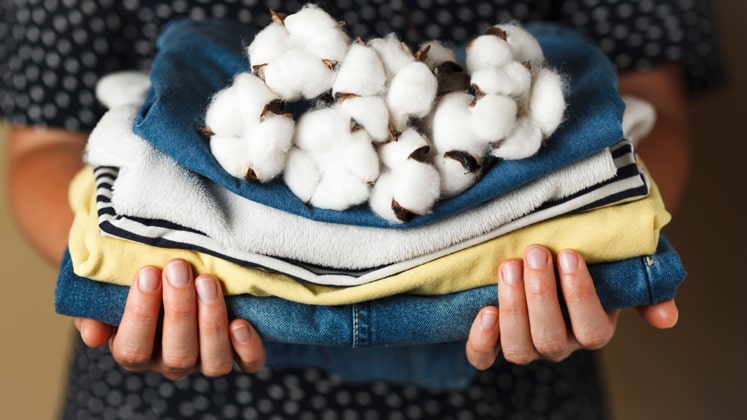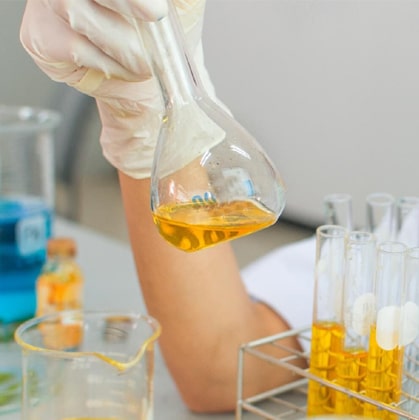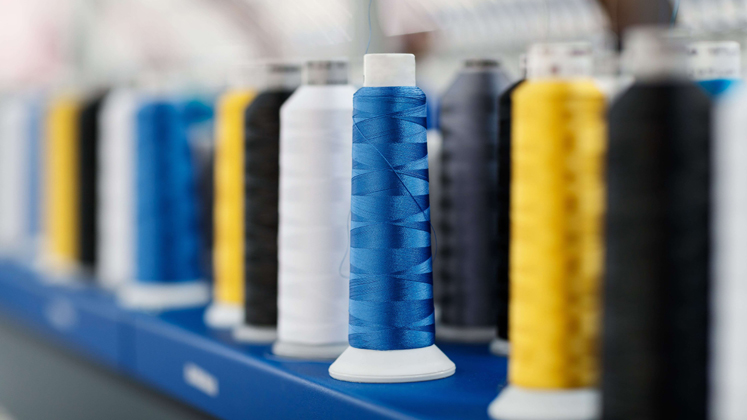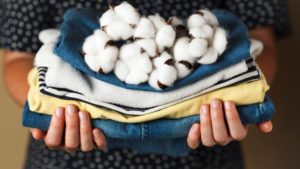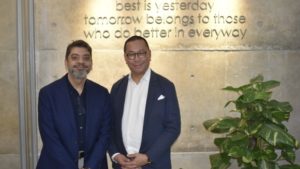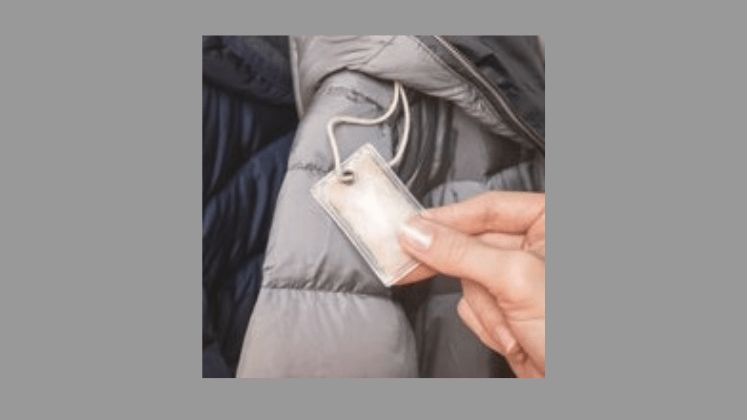A tipping point has been reached in the world of sustainability, with organisations facing increasing challenges from growing complexities across their value chains, as well as consumer expectations of corporate responsibility. A McKinsey & Co. survey on sustainability in fashion found that 67 per cent of consumers considered the use of sustainable materials to be an important purchasing factor.
For many global brands, suppliers, manufacturers and retailers, sustainability has become a matter of high priority and key to their strategy, with the fashion industry working to incorporate sustainable practices into its products, supply chains and business operations. The demand is growing for Total Quality Assurance (TQA) services that go beyond quality and safety programmes to include long-term sustainable solutions.
Intertek is an industry leader with more than 44,000 employees in 1,000 locations in over 100 countries, delivering TQA solutions with its industry-leading processes and customer-centric culture.
Sustainability services are core to the company’s global business. Its clients trust Intertek to ensure quality, safety and sustainability in their businesses, across their entire value chain, to protect their brands and help them gain competitive advantage.
Through its global network, local knowledge and subject-matter expertise, Intertek is well- positioned to provide the textile industry with a unique end-to-end solution that includes a wide variety of sustainability services and independent certifications. The company says it can help clients to meaningfully demonstrate their commitment to sustainability and manage risk and resilience, whilst enabling them to operate effectively and act responsibly.
When it comes to textiles and apparel, Intertek helps organisations demonstrate to their stakeholders that their products are made with sustainability in mind through the entire lifecycle via third-party verification, starting from raw materials and components to transportation and finished product use, disposal, recovery and reuse.
“We draw on our various innovations and operational sustainability solutions for the textiles sector, which include key chemical management services like RSL Scan, ZDHC Programme Testing, SAC Higg Verification and ToxClear, as well as Textile Exchange and GOTS Certifications, Recycled Polyester Verification, Vegan Mark Programme, Lifecycle and Sustainability Assessment, Eco-Textile Testing and more,” mentioned Intertek.
Through its global network, local knowledge and subject-matter expertise, Intertek is well- positioned to provide the textile industry with a unique end-to-end solution that includes wide variety of sustainability services and independent certifications.
Textile Exchange and GOTS
The goal of the Textile Exchange certification is to drive sustainability both in the textile and non-textile industry and encourage the use of recycled, organic or preferred materials in products to minimise the harm caused by its production. The aim of Global Organic Textile Standard (GOTS) certification is to ensure the organic status of textiles, from harvesting of the raw materials, through environmentally and socially responsible manufacturing, up to labelling in order to provide a credible assurance to the end consumer.
Textile Exchange and GOTS organisations provide the knowledge and tools the industry needs to make significant improvements that drive industry transformation in three core areas: Preferred Fibre and Materials, Integrity and Standards and Responsible Supply Network, to reduce the textile industry’s impact on water, soil and air quality as well as the human population.
Intertek provides independent third-party certification of GOTS and Textile Exchange standards like Global Recycled Standard (GRS), Recycled Claim Standard (RCS), Content Claim Standard (CCS), Organic Content Standard (OCS), Responsible Animal Fibres Programmes (Wool, Mohair, Alpaca) supply chain certification excluding farms, Responsible Down Standard (RDS) supply chain certification excluding farms and slaughterhouses, and GOTS. The goal of GRS is to increase the use of recycled materials in products and reduce the harmful impact of production on people and the environment.
The goal of RCS is to increase the use of recycled materials. CCS helps ensure chain of custody integrity from raw material to finished product. OCS aims to increase organic agriculture production by providing the industry with a tool to verify organically grown content.
The goal of the RAF programmes is to address and improve animal welfare, the ecosystems and the land animals graze on. The goal of RDS is to protect ducks and geese used for down. Process management and guidance throughout the entire certification life cycle is done through Intertek’s web-based platform SourceClear, providing visibility into the certifications and supporting faster business transactions.
Recycled Polyester Verification
Polyethylene Terephthalate (PET) and recycled PET (R-PET) are materials known for their durability and versatility that may need to be analysed for various reasons, such as to discover if the material has been previously recycled, to confirm its molecular weight, or to discover the presence of heavy metals. Intertek experts have years of experience in analysing materials such as PET and R-PET, using a wide range of techniques like nuclear magnetic resonance (NMR), GPC, ICP and XRF.
Post-consumer PET from bottles is an important source of recycling and upcycling for the apparel and footwear industry, with 8 per cent of the world’s production of PET fibres comprised of recycled PET. The increased demand for R-PET is driven by end users and the commitment of consumer brands to reach circular economic sustainability.
Intertek recently developed a testing method to help verify the authenticity of recycled polyester used in yarn, textile and garment production, by determining a unique marker for R-PET from bottles using chemical analysis. This innovative method can be used by vendors and factories to verify the content of yarns, fabrics, and garments; and by brands and buyers to verify recycled polyester claims.
Vegan Mark Programme
Veganism has increased in popularity in recent years. More than just what people choose to eat, veganism is reshaping the fashion world as well, with clothes, shoes and accessories increasingly being made without fur, leather, wool or silk.
It can be difficult to verify a vegan claim of a product as its primary materials may not be of animal origin, yet contain additives such as glues and dyes which are derived from animals or animal by-products (e.g. beeswax) that are not considered vegan. Some of the vegan mark programmes in the market are backed up by supplier declarations only. To answer the market demand for a trustworthy programme to verify vegan claims, Intertek’s Vegan Mark Verification Programme has a testing protocol that covers declaration by the applicant, screening of animal fibre, screening of synthetic material by Fourier Transform Infrared (FTIR) and chemical test on animal tracer.
The Vegan Mark enables apparel, footwear and accessories retailers, brands and manufacturers to promote their products as being free of materials of animal origin and it can be used to help consumers make educated decisions about the fashion products they purchase.
Fibre to Garment Lifecycle Assessment
There has been an increased focus on the sustainability of garment production because it involves a heavy use of chemical substances, which leaves solid waste in the environment, causing persistent pollution. Intertek’s Fab for Life is an innovative approach that assesses the environmental impact during the key stages in the lifecycle of a garment. With this innovative solution, Intertek analyses different impacts at the fibre stage, fabric stage and garment stage, revealing how there can be improvements in different areas. The fibre stage detects hazardous chemicals through RSL development and testing of fibres. The fabric stage tests for residue released into the water supply from a finished fabric during a simulated home laundering process. The final step, the garment stage, is for durability assessment over the lifetime of a garment. Fab for Life enables retailers and brands to develop a more holistic approach toward product lifecycle with testing at all stages of the lifecycle.
The subject of sustainability in the industry is vast. Intertek Total Sustainability Assurance offers a full suite of solutions covering end-to-end fashion value chains to meet customer demand as they move towards operating sustainable businesses. A comprehensive spectrum of Eco-Textile Testing services, for example, targets environmental protection and consumer health and safety through testing of substances like heavy metals, formaldehyde, banned azo colourants, and AP/APEOs. Eco-certifications like WRAP (Worldwide Responsible Accredited Production) for textile, apparel and footwear products are offered to help retailers, brands and manufacturers demonstrate due diligence and gain a competitive advantage. At Intertek, a team of passionate people and a global network of experts are always available to support customers with science-based customer excellence.
Good-to-know Sustainability Buzzwords
rPET: rPET clothing is more energy-efficient: Clothing made from rPET has almost the same quality as virgin polyester, but its production requires 59 per cent less energy.
Vegan: Plant-based products have smaller carbon footprints: For example, on an average, emissions from plant-based foods are 10 to 50 times smaller than those from animal products.
Microfibre: World’s microplastic ocean pollution: Textiles produce 35 per cent of the microplastic pollution in the world’s oceans, in the form of synthetic microfibres.
Detox: Movement to eliminate the release of hazardous chemicals from supply chains and products: Initiated by Greenpeace in 2011 as a challenge to fashion brands. In response, some signatory brands founded ZDHC (Zero Discharge of Hazardous Chemicals), an influential collaboration to lead the industry toward zero discharge.

